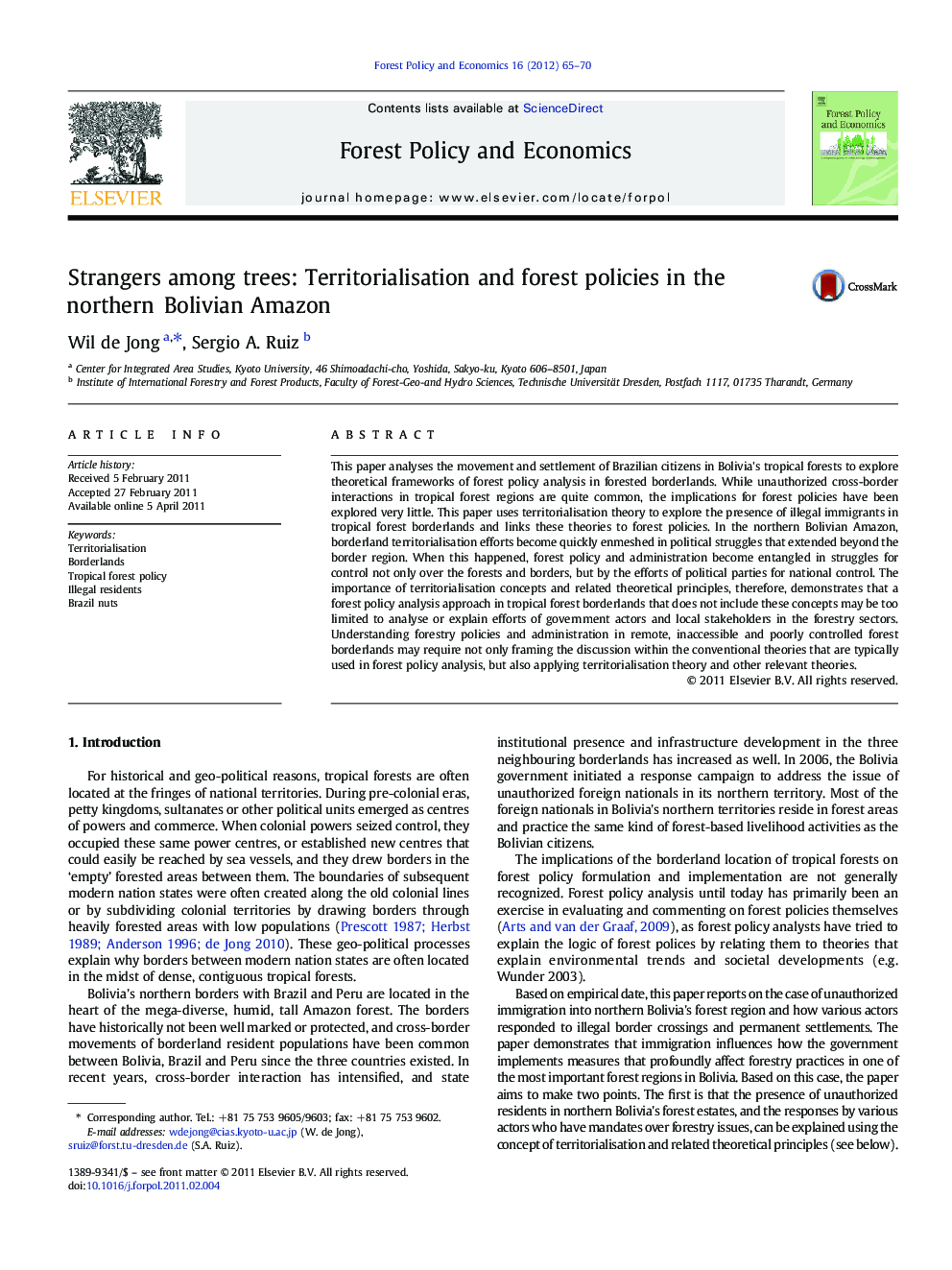| Article ID | Journal | Published Year | Pages | File Type |
|---|---|---|---|---|
| 91160 | Forest Policy and Economics | 2012 | 6 Pages |
This paper analyses the movement and settlement of Brazilian citizens in Bolivia's tropical forests to explore theoretical frameworks of forest policy analysis in forested borderlands. While unauthorized cross-border interactions in tropical forest regions are quite common, the implications for forest policies have been explored very little. This paper uses territorialisation theory to explore the presence of illegal immigrants in tropical forest borderlands and links these theories to forest policies. In the northern Bolivian Amazon, borderland territorialisation efforts become quickly enmeshed in political struggles that extended beyond the border region. When this happened, forest policy and administration become entangled in struggles for control not only over the forests and borders, but by the efforts of political parties for national control. The importance of territorialisation concepts and related theoretical principles, therefore, demonstrates that a forest policy analysis approach in tropical forest borderlands that does not include these concepts may be too limited to analyse or explain efforts of government actors and local stakeholders in the forestry sectors. Understanding forestry policies and administration in remote, inaccessible and poorly controlled forest borderlands may require not only framing the discussion within the conventional theories that are typically used in forest policy analysis, but also applying territorialisation theory and other relevant theories.
Research Highlights► We reviewed the presence of foreign residence, mostly from Brazil and Peru, in the northern Bolivia tropical forest regions and the recent surge of media attention and government’s policy responses. ► The foreign resident issue came into the national political spotlight, and a contested political issue, because of an opposition party legislative proposal to resolve a decade old phenomenon issue. ► The forest policy responses of central and prefectural governments are explained by forest sectoral considerations, but also as political survival strategies. ► The paper uses territorialisation theory, which it defines as the political ecology of territory, as a conceptual frame to explain the various responses to the issue. ► Territorialisation can oftentimes serve as an adequate theoretical tool for analysing forest policies for tropical forest regions located in borderland.
